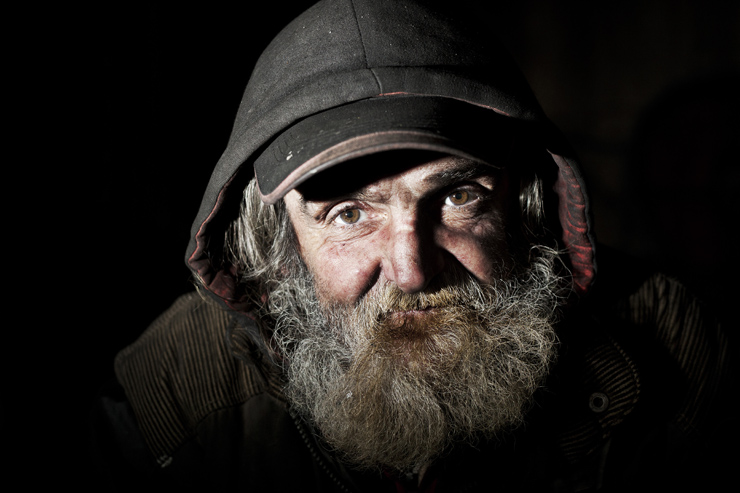Moral relativism takes the position that there are no universal moral truths that can be said to govern all human behavior. Instead morality is relative to social, cultural, historical or personal circumstances. In this philosophy decisions would be based on: “When in Rome, do as the Romans do.” “Your truth is not my truth.” “Live and let live.”
How problematic is this philosophy, now prevalent in all areas of life? In a 2010 survey sponsored by the Knights of Columbus and the Marist Institute, young adult Catholics, between the ages of 18-29, were asked whether there are universal standards for morality. A whopping 82% said they believed that morals are relative. In practice this means: 63% of these young Catholics said they view same sex marriage as either “morally acceptable” or “not a moral issue”; 80% say sex outside of marriage is acceptable or not a moral issue; 67% see embryonic stem cell research as morally acceptable or not a moral issue; 64% say they are more “spiritual” than religious; and 61% say “it is OK for someone of your religion to also practice other religions.”
The survey indicates that our young people have given in to “political correctness” and are joining the “relative confusion” of the modern world. Modernity has spawned a serious problem , which author Steve Wood (FamilyLifeCenter.net) describes as “the cancer of moral relativism.”
According to classical relativism, abortion is “right/good” because it is codified into the law of the land. But according to subjective relativism, guns are “bad,” even though they are legal and Constitutionally protected, because the media reports a “growing consensus against them.”
Relativism leads to moral chaos because it has taken away the foundation we have used for centuries in evaluating behavior. From this perspective, there cannot be a god, since God demands of us the Good which has been revealed. “Relativism,” according to Fr. Kevin Iwuoha’s doctoral thesis, “Can be used to justify anything.”
We know that our passions, when unrestrained by self-discipline and virtue, can rationalize and justify even the most hedonistic and sadistic of behaviors. This leaves young people floundering in a moral morass.
But there is hope through clear reasoning… and faith.
“Conventional relativism places the individual’s will subordinate to the will of the cultural majority,” says Fr. Kevin. Those who point to the “rightness” of abortion say that the State has decided this issue and therefore “it’s a done deal.” But this very tendency to look to a “higher authority” for clarity, points to the heart of the problem with relativism. We instinctively look for a “Higher Authority” who will define and clarify the murky waters disguising Truth…but the State is inadequate because it no longer references the Ultimate Authority which was identified in the words “In God we trust.”
We are “hard wired” to know that we need this Higher Authority to keep us on the “right road.” Morality is not something that can be decided by a majority vote. Actions are either “right or wrong” in their essence.
Even in areas of scientific discovery, such as “the earth rotates around the sun”, we may define truths without “hard or sensory data.” And because scientists, with advanced equipment have studied this and published their finding, we tend to trust them! Thus we see that even in so-called “hard science” there is an element of faith!
The same can be said for uncovering universal, moral truths. We can use reason, natural law and faith to uncover the basics. And when the Magisterium, the Pope and theologians base their statements on the whole of history, tradition and faith, we might want to obey their proclamations.
From the time of the ancient Greeks through the Middle Ages, the study of theology—with questions about, “What is the nature of God? Why are we here? What does God expect of mankind?”—was considered to be the highest source of knowledge. It was the basis of all learning; the “cornerstone” of understanding; the foundation for real freedom. Recognizing that there is Truth which has been revealed and can be known—this is the way to live in the Light.
Fr. Kevin makes these recommendations for change:
“The so-called ‘values clarification’ curriculum should be removed immediately from our public schools since this aggressively promotes moral relativism. And Moral Absolutism should be preached and taught as widely as possible.”
“If the ethical relativist argues against moral absolutism for its supposed intolerance, we can argue against relativism from its real consequences…Good morality should have good consequences…the main consequence of moral relativism is the removal of moral determinants…” Relativism has led to a widespread attitude of “if it feels good, do it”, but this attitude provides transient “feel good” opportunities while in the long run it leads to emotional or physical damage for the individual and society. “Relativism has never produced a saint. Relativism has never produced a good society, only a bad one. Compare the stability, longevity and happiness of societies founded by relativists like Mussolini and Mao Tse Tung, compared to absolutists like Moses and Confucius. ..Hitler’s thousand-year Reich lasted less than a generation.”
Absolutism is traditional morality with universally binding standards of behavior. According to Fr. Kevin, “Tradition counters the small and arrogant oligarchy of the living. To be a relativist, you must believe that nearly all human beings in history have ordered their lives by an illusion. How arrogant.”
Fr. Kevin calls us to reflect on four everyday experiences that tells us morality has an Absolute, rather than a Relative, nature:
1) Morality is a call from the Good which is bigger than our individuality. Suppose you commit to helping a friend move out of an apartment which has to be done by noon and you agree to come at 8 a.m. But you were studying late into the night and when the alarm goes off, you want to return to sleep. You will then experience two things. From within, your body says, “sleep.” But from without, you have a clear sense of obligation. You feel as if someone is saying, “Do the right thing.”
“If you get up to fulfill your promise, it will be because you chose to respond to a very different kind of thing—the perceived moral quality of the deed…What you perceive as right pulls you from without, from itself, from its own nature” of goodness, coming from the Good. “Moral absolutism is empirical.”
2) Moral Absolutes are recognized when others “do onto you.” We all feel clarity about universal standards of right and wrong, when the experience is personal. For example: if a husband breaks his promise of fidelity based on relativism, “this is what’s right for me”, he will still feel moral outrage if his wife does the same thing to him.
3) If we are to simply “live and let live,” why do relativists push their ideas so hard? Certainly they are trying to convince the world that they are and moral absolutism is wrong. If so, then there must be a real right and a real wrong! Relativists tend to have a lack of tolerance for what they see as wrong, and an “absolute” belief in their ego.
4) Quarreling about “fairness” reveals Truth. Taking a cue from C.S. Lewis, Fr. Kevin reminds us that people quarrel over what is right and wrong not because they don’t believe in it. They quarrel because they believe that an objective, universally binding truth can be known! There are phrases in our language that seem to come unbidden: “That isn’t fair.” “What right do you have to take that?” “That was really wrong of you to do.” We use moral language everyday to praise, blame, condemn or command. We judge.
“It is not reason, but the very abdication of reason that is the source of moral relativism. Relativism is rationalization…It is the repudiation of the principle that passions must be evaluated by reason and controlled by will,” says Fr. Kevin. Rationalizing is a childlike process—“I want it because everyone else has it.” Maturity evolves when self control and moral reasoning have developed. It is time to reintroduce our culture to these things.
Here are some action steps, gleaned from Fr. Kevin and the review of relativism:
- Take back the language. Orwell predicted that when “good” is called “bad” we will have sold our world to the devil. “Tolerance” which is widely touted as the virtue of the day, does not actually mean we should “legalize and legitimize things anyone demands.” True tolerance is about accepting the humanity of all people, but it does not mean embracing sin. Very often, it is the people who are pushing their relativism who are the most “intolerant.”
- The Church has 2000 years of Tradition and Authority behind her. Listen and obey. Our young people need to know that you can’t chose to believe one thing the Church teaches and throw out the rest, without putting yourself on shaky ground. Scripture and the Church have been around a long time and can guide us to Truth, love and goodness. Why should we look elsewhere?
- Jesus said we would be persecuted. Prepare with prayer. When we speak up for universal Truth we can expect to be persecuted. But Jesus said, “The Truth will set you free.” We are called to be witnesses to others. To view a powerful example of witness to truth, see the YouTube video of Brian Brown, from the National Organization for Marriage, in his debate (Aug. 22, 2012) with Dan Savage, a homosexual activist. Brown went to the home of the activist to participate in a civil discussion. He demonstrates reason, civility and grace but is widely vilified in the media.
“The one truth of relativism is that everything is relative—but it is relative to God, “ says Fr. Kevin. “For He alone gives meaning and value to life… Moral Absolutists must never forget that morality, though absolute, in not ultimate. We are designed for mystical union with God. “
“The cure [for our world] must be stronger medicine than philosophy. Repent, believe and pray. I can think of nothing else that can save this civilization except saints. Please be one.”
Editor’s Note: This is Part 2 of a two-part series on Moral Relativism based on Judith Costello’s interview with Fr. Kevin Iwuoha, a priest who is in the United States “on loan” from Nigeria, and his as-yet-unpublished 400-page doctoral thesis.
Visit Judith’s website: http://www.drawingonfaith.weebly.com/. Her artwork is featured at www.flickr.com/photos/faithart/ and on Facebook.
If you liked this article, please share it with your friends and family using the Share and Recommend buttons below and via email. We value your comments and encourage you to leave your thoughts below. Thank you! – The Editors













